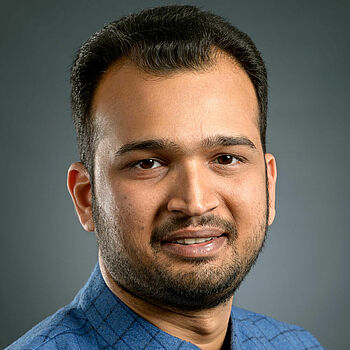DZNE Tübingen
In the laboratories of the DZNE Tübingen, scientists investigate the causes and mechanisms of nerve diseases at the molecular, genetic, and cellular levels. Special attention is given to Parkinson’s disease, Alzheimer’s disease, frontotemporal dementia (FTD), amyotrophic lateral sclerosis (ALS), and rare movement disorders such as ataxias.
As a result, the Tübingen experts are studying nerve-damaging inflammatory processes in the brain as well as hereditary factors that can play an important role in neurodegenerative diseases, as some gene variants can increase the risk of disease or even directly trigger a disease, while other variants protect against it. At the DZNE Tübingen, researchers therefore hope to discover such risk and protection factors in order to pave the way for new measures in prevention, diagnosis, and treatment.

Our research aims to enable earlier diagnosis and better treatment of neurodegenerative diseases like Parkinson’s and Alzheimer’s.
Through human clinical observation and threapy studies, scientists at the DZNE in Tübingen are also working on a better method for early detection of Alzheimer’s, Parkinson’s, and ataxias, and on new therapeutic measures. To this end, they are examining the research participants to find biomarkers, which are measurable biological indicators (in the blood or cerebrospinal fluid, for example) that can be used to detect a disease and assess how it will progress. Clinical research in Tübingen is also dedicated to the rare, hereditary form of Parkinson’s disease.
Your commitment can make a big difference!
By participating in scientific studies, donating brain tissue or providing financial support, you can make a significant contribution to medical progress and a healthy future.
Clinical Trials Unit (CTU)
Further information and contact to our study team can be found here.
Clinical studies
Here you will find a current overview of our clinical studies.
Researchers in Tübingen
Site coordination
Dr. Anna-Lena Hillje
Office
Joanna Krawczyk
+49 7071 9254-051
Address
Otfried-Müller-Straße 23
72076 Tübingen
Printable directions










